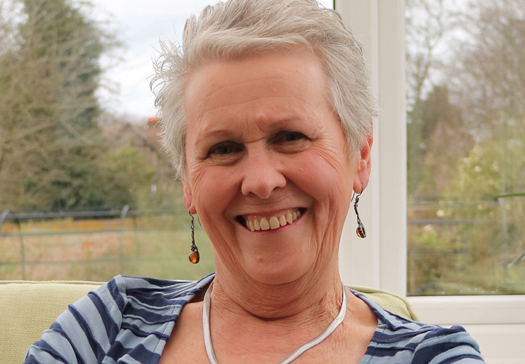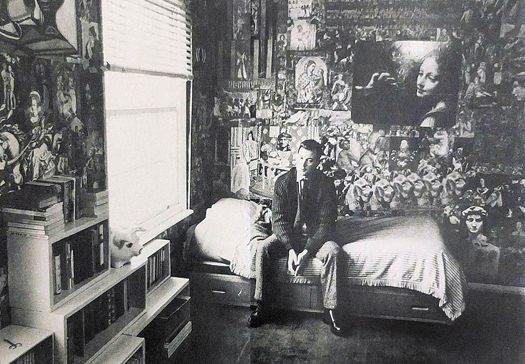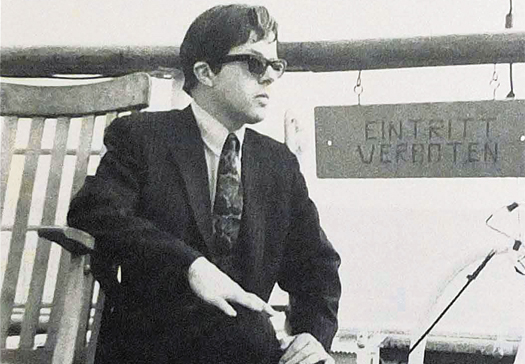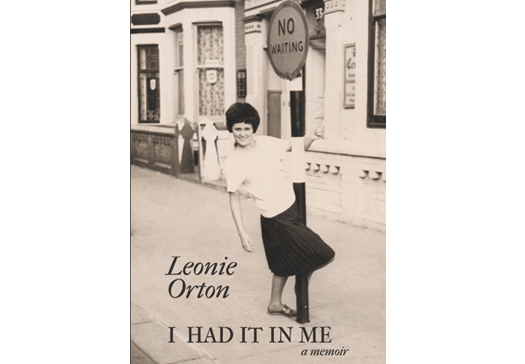Orton’s sister: ‘Today’s world would have suited my Joe’
Leonie Orton remembers playwright who was killed 50 years ago, ‘just when he felt happy for the first time’
Friday, 10th March 2017 — By Koos Couvée

Leonie Orton says the murder of her brother Joe by Kenneth Halliwell was ‘a massive act of selfishness’.
THE sister of gay playwright Joe Orton, who was brutally murdered by his partner Kenneth Halliwell 50 years ago, has said her brother would have been happy to see how today’s society has become more accepting of sexual minorities.
Orton’s play What The Butler Saw – written the year he died – challenged attitudes towards homosexuality at a time when it was still illegal.
His sister Leonie, who was 11 years his junior but with whom he had a close bond, did not know her brother was gay until after his death.
Speaking from her home in Norfolk, the 72-year-old told the Tribune: “Fortunately, we now live in a more egalitarian society and thank goodness for that.
“Joe always felt that people should do whatever made them happy so long as they didn’t hurt anyone. I think he would have been more pleased in today’s world. I just think it’s a lot less oppressive.”

Joe Orton
Ms Orton, who is involved in a production of What The Butler Saw that has just opened at the Curve Theatre in their home town of Leicester, said her brother’s black comedies which have shocked, outraged and amused audiences are still relevant today.
“I don’t think Joe cared a jot about what society thought of him,” she said. “I think that’s what a great satirist is about. As far as he was concerned society had never cared about him when he was growing up in poverty. The British class system was so brutal. And that’s what he put on stage, especially in What The Butler Saw.
“We grew up in poverty on this sprawling council estate in Leicester in the 1950s,” she added. “There were four kids, our parents were both out of work and there was no heating in the house except for the coal fire. But from this awful beginning, this playwright emerges.”
Having discovered his passion for amateur theatre, Orton bagged a grant to go to the Royal Academy of Dramatic Art, where he met Halliwell, who aspired to become a writer.
Orton moved into Halliwell’s flat in Noel Road, Angel, where, according to his sister, they lived a “monkish existence”. “They would go to the library and were both ferocious readers,” she said. “They spent 16 years together, and 13 of those they spent trying to write and educate one another, really. Kenneth was more the mentor and Joe the student.
“Kenneth was a marvellous editor. He was always reading Joe’s plays and sort of interpreting them and talking to Joe about them. He would suggest things to Joe and he would then incorporate it in the play.”

Kenneth Halliwell
However, the seeds of Orton’s future success – and Halliwell’s breakdown – were sown when they were jailed for six months in 1962 for defacing hundreds of library books.
“They went to separate prisons and Joe must have had some revelation and the scales dropped from his eyes,” Ms Orton said. “He must’ve seen how ludicrous and immoral society was.
“He believed people are really bad but also irresistibly funny. After he emerged from prison he started writing these shockingly funny and totally irreverent plays and enjoyed a sort of new-found credo, that he could say whatever he liked.”
However, while Orton was working hard, Halliwell became increasingly depressed, argumentative and plagued with ill health.
On August 9, 1967, he bludgeoned Orton to death at their home before committing suicide with an overdose of sleeping pills.
“Clearly, Kenneth was spiralling out of control. He was not being included by Joe’s new friends. I think he was getting more and more marginalised and didn’t cope with that very well,” she said. “He must’ve thought that Joe had outgrown the relationship and that there was no way back.
“It was a massive act of selfishness. That if he couldn’t have him then no one was going to.”
She added: “The saddest point is that just when he was reaching the heights of a great writer, he was stopped in his tracks, murdered by this man he had lived with and called his friend for 16 years. That’s dreadfully sad. It was the first time in his life that he felt happy.”

Leonie Orton’s memoir
What The Butler Saw, starring Rufus Hound, is at the Curve Theatre in Leicester until March 18. It will be at the Theatre Royal in Bath from March 27 to April 1.
Ms Orton’s memoirs, I Had It In Me, came out last year.